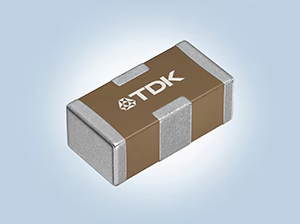The filters cut noise and voltage changes in car power lines. They use fewer parts and smaller sizes to help car electronics work.

TDK Corporation has extended its YFF series of 3-terminal filters for automotive applications, now supporting voltages up to 35 V and capacitances up to 4.7 µF. These components help reduce voltage fluctuations and high-frequency noise that can cause system errors.
The main applications of these components include smoothing, filtering, and decoupling power lines in automotive systems. The product is for automotive electronics manufacturers and system designers. It is useful for engineers working on smaller automotive electronic systems that require fewer components without losing performance or reliability. Automotive suppliers focused on improving power supply stability and meeting industry standards will also benefit from using these 3-terminal filters.
As automotive electronics become smaller, there’s growing demand to prevent malfunctions using fewer components. Traditional designs rely on many capacitors, but space constraints call for compact solutions. 3-terminal filters with low ESL (equivalent series inductance) are now in greater demand.
The company claims to improve the materials and design to raise voltage tolerance and capacitance. The 35 V filter offers 40 dB insertion loss, making it suitable for both input and output lines. The 4.7 µF version delivers 30 dB insertion loss, outperforming standard capacitors in cutting voltage noise and high-frequency interference. In some setups, these filters can reduce the number of parts needed by half compared to MLCCs.
The main features and benefits include reducing the number of components and enabling smaller device sizes, while also minimizing voltage fluctuations and high-frequency noise through high withstand voltage and large capacitance. These products also offer high reliability, meeting the AEC-Q200 qualification standard.
For more information, click here.







